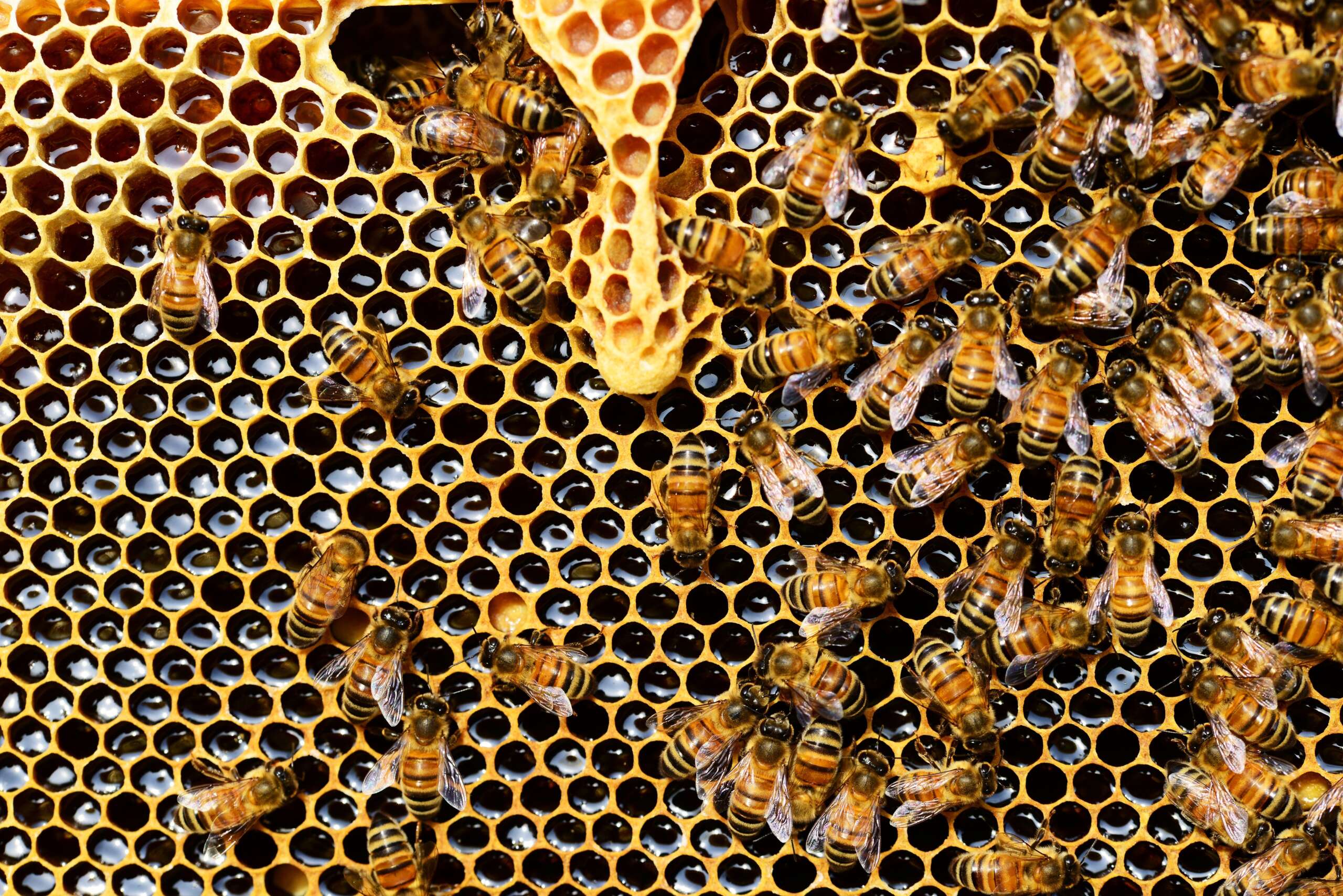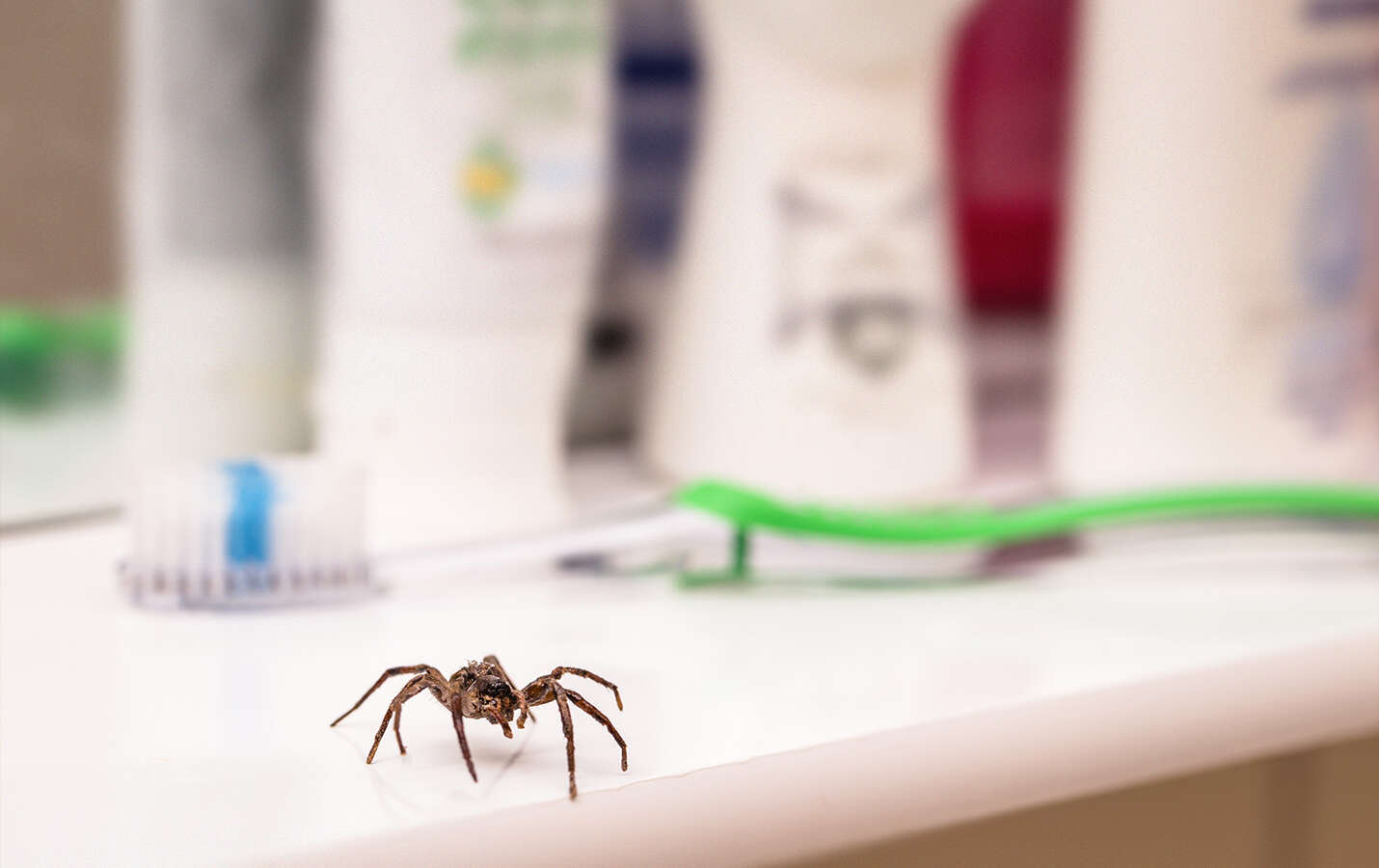April showers bring May flowers, and those flowers need pollination and the best pollinators are honey bees and bumble bees. This time of year, as the weather warms and the direction of the sun changes, these wonderful insects emerge in the world and get ready to accomplish one of nature’s most important jobs.
Honeybees
Honeybee hives have long provided humans with honey and beeswax. Such commercial uses have spawned a large beekeeping industry around the world. Beekeepers do their best to save hives and allow these colonies to prosper and provide us with a much-needed purpose. All honeybees are social and cooperative insects. A hive’s inhabitants are generally divided into three types.
Workers
Workers are the only bees that most people ever see. These bees are females that are not sexually developed. Workers forage for food (pollen and nectar from flowers), build and protect the hive, clean, circulate air by beating their wings. The honeybees beat their wings 230 times per second and it’s this rapid movement that allows for the regulation of temperature, to spread pheromones and to evaporate moisture which in turn allows for better honey production.
The Queen
The queen’s job is simple, laying the eggs that will spawn the hive’s next generation of bees. There is usually only a single queen in a hive. If the queen dies, workers will create a new queen by feeding one of the female larvae an exclusive diet of a food called “royal jelly.” This enables the worker to develop into a fertile queen. Queens also regulate the hive’s activities by producing chemicals that guide the behavior of the other bees.
Drones
Male bees are called drones—the third class of honeybee. Several hundred drones live in each hive during the spring and summer, but they are expelled for the winter months when the hive goes into survival mode.
Bumblebees
Bumblebees are furry, round insects that live mostly in temperate climates in the Northern Hemisphere. There are more than 250 species of bumblebees. The largest bumblebee species can grow to be an inch and a half in length. Bumblebees are distinctive for their fuzzy, pile-covered bodies and bold colors, which helps them ward off predators. Unlike honeybees, they don’t make honey, as they don’t need to store food for winter—they typically live only one year.
Bumblebees are among the most important pollinators. They excel at spreading pollen and fertilizing many types of wild plants, as well as important agricultural crops like tomatoes, blueberries, and squash. They can fly in cooler temperatures than other bees, which makes them well suited to pollinating mountain habitats, coastal plains, and even Arctic tundra.
Queens emerge from hibernation in the spring and forage to find a nesting site, which more times than not is a vacated rodent burrow. The queen lays and incubates several broods of eggs over the course of spring and summer, which she keeps warm by generating heat with her wings. The eggs hatch and grow into worker bees.
Colonies can be as small as 50 bees—much smaller than honeybee colonies, which can number in the thousands. The final generation of eggs, which comes around late summer, produces queens for next season and males for them to mate with. By fall, colonies typically die out, and the new fertilized queens go underground to wait out the winter.
Are Pollinators Aggressive to Humans?
Most people are fearful of honeybees and bumblebees, but these insects are not very aggressive towards humans.
Honeybees are not dangerous unless they feel their hives are threatened. Pollinators, unlike predators such as yellowjackets and hornets who can sting a victim multiple times, honeybees sting as a last-ditch effort to stop an intruder.
Bumblebees are also not aggressive and less likely to sting like hornets and yellow jackets. Males cannot sting, and females only do so when they feel threatened. Their stings, however, are painful and could be dangerous to those with allergies. As with any stinging insects it is better to err on the side of caution and if help is needed to address these types of insects call DeAngelo Pest Control and we will be more than happy to assist you.





